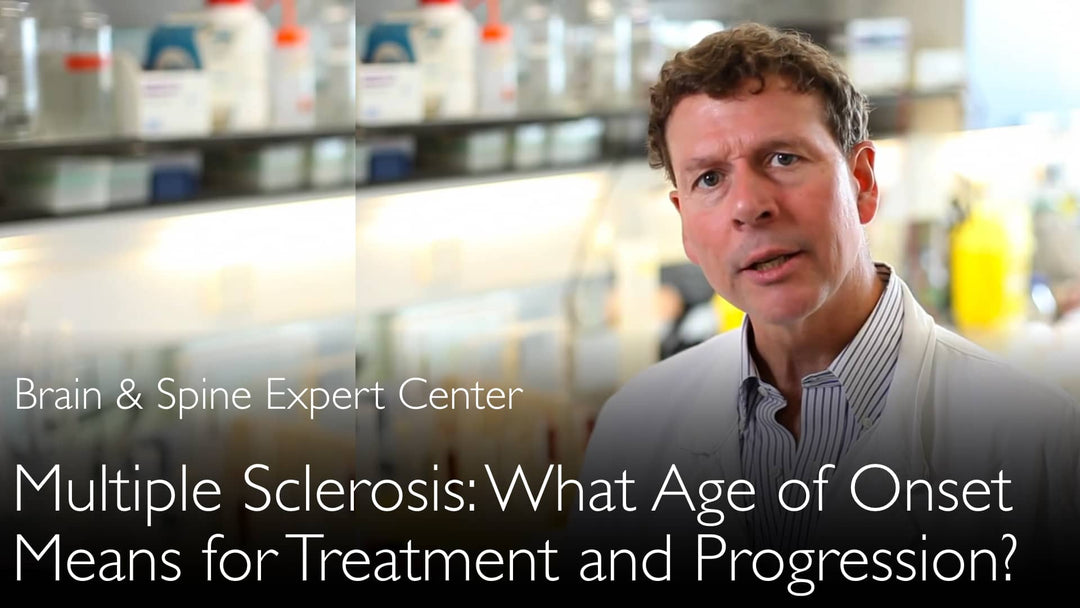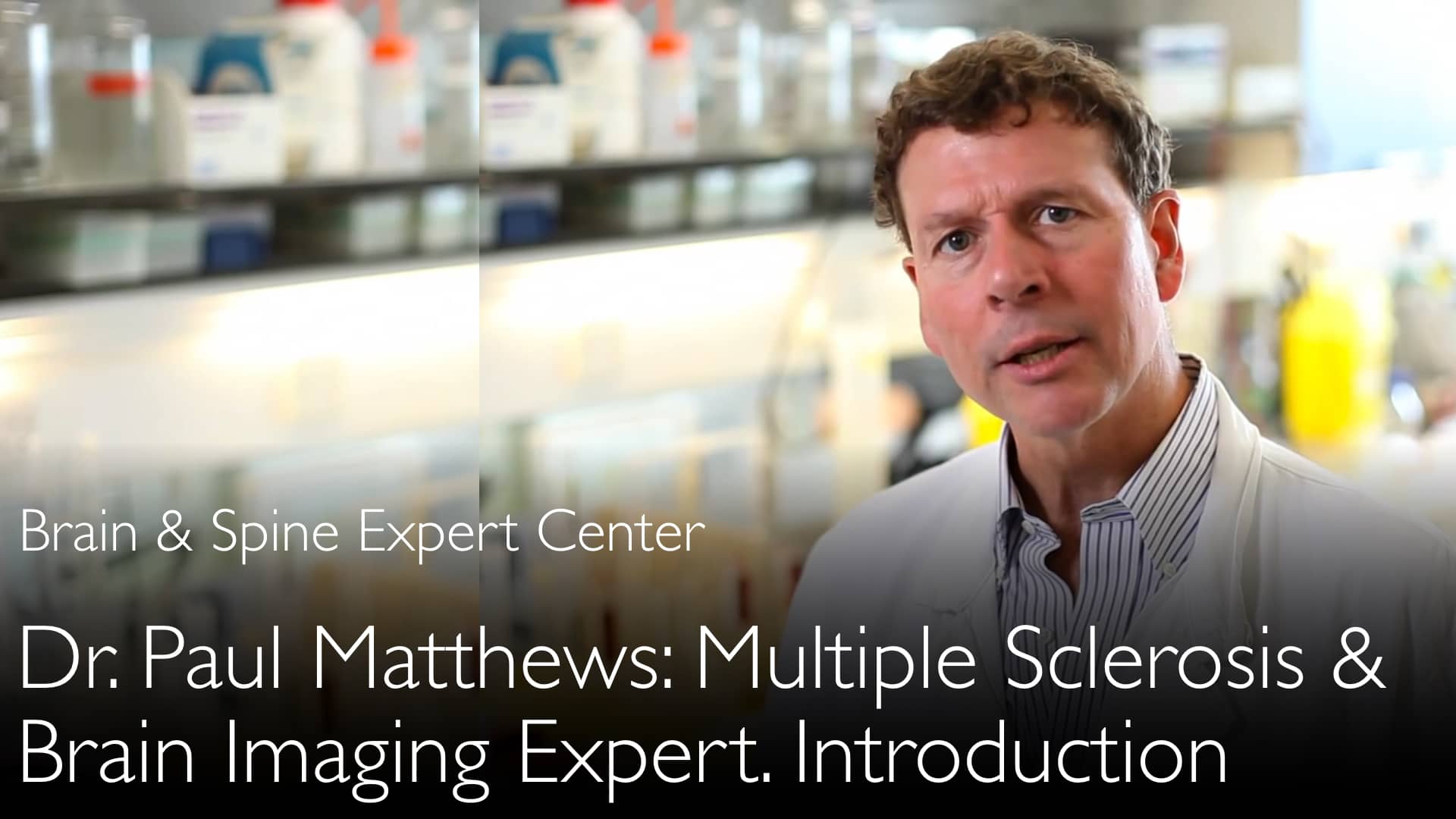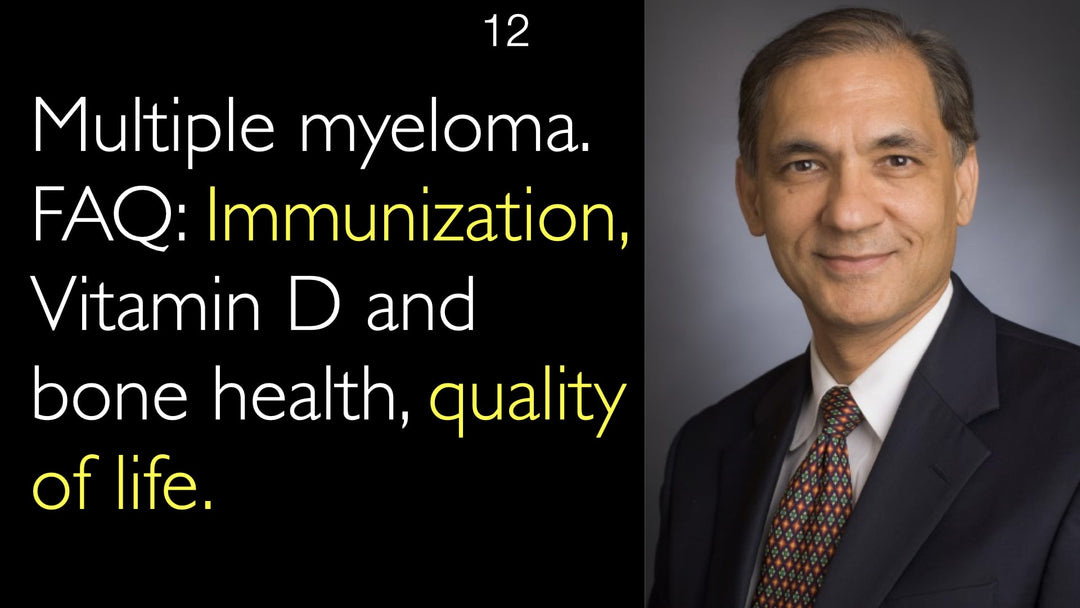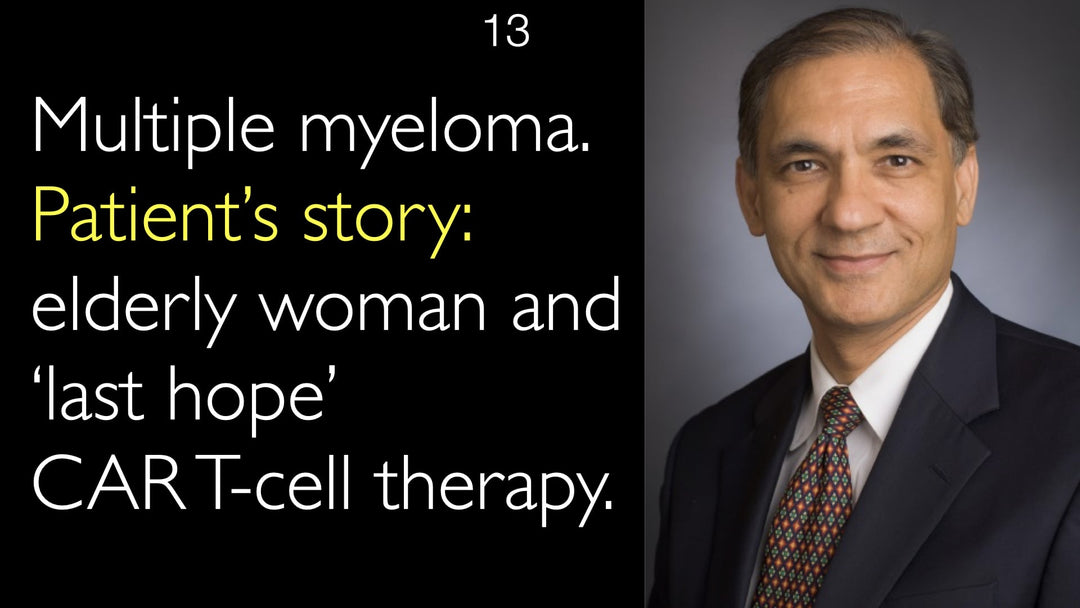O renomado especialista em esclerose múltipla, Dr. Paul Matthews, explica como a idade de início da doença influencia sua progressão e o tratamento. Sua análise detalhada por ressonância magnética revela que pacientes mais velhos apresentam neurodegeneração mais acelerada. Os dados de ensaios clínicos confirmam uma forte interação entre processos inflamatórios e o envelhecimento cerebral. As descobertas têm implicações importantes para o prognóstico e as estratégias terapêuticas no manejo da esclerose múltipla.
Idade de Início da Esclerose Múltipla: Impacto no Prognóstico e Estratégias de Tratamento
Ir para a Seção
- Idade de Início na Esclerose Múltipla
- Insights de Ensaios Clínicos sobre a Progressão da EM
- Análise por Ressonância Magnética e Neurodegeneração
- Distribuição por Sexo e Diferenças na Apresentação
- Conexão entre Inflamação e Envelhecimento Cerebral
- Implicações no Tratamento e Prognóstico
- Transcrição Completa
Idade de Início na Esclerose Múltipla
A esclerose múltipla geralmente se manifesta em adultos jovens. Segundo o Dr. Paul Matthews, esses pacientes frequentemente apresentam um curso remitente-recorrente da doença. A idade em que surgem os primeiros sintomas é um fator prognóstico crucial, influenciando significativamente a trajetória clínica a longo prazo após o diagnóstico.
Insights de Ensaios Clínicos sobre a Progressão da EM
Um ensaio clínico pivotal, analisado pelo Dr. Paul Matthews, controlou a duração da doença ao estudar pacientes de meia-idade. Os resultados mostraram que indivíduos mais velhos apresentaram consistentemente um curso clínico mais agressivo, independentemente do tempo de diagnóstico. Isso destaca a idade em si como um fator determinante para a progressão da incapacidade.
Análise por Ressonância Magnética e Neurodegeneração
Em sua pesquisa, o Dr. Paul Matthews utilizou técnicas avançadas de ressonância magnética. As imagens revelaram danos mais extensos na substância branca cerebral em pacientes mais velhos, indicando maior perda de células nervosas e axônios—processo conhecido como neurodegeneração. Esses achados oferecem uma base biológica para a incapacidade acelerada observada em casos de início tardio da esclerose múltipla.
Distribuição por Sexo e Diferenças na Apresentação
O ensaio clínico também evidenciou variações demográficas relevantes. O Dr. Paul Matthews ressalta diferenças na distribuição por sexo entre os grupos: pacientes com início na meia-idade apresentam um perfil distinto em comparação com aqueles de início precoce. Isso sugere que os mecanismos da doença podem variar conforme a idade de manifestação.
Conexão entre Inflamação e Envelhecimento Cerebral
O Dr. Paul Matthews explica que há uma forte interação entre processos inflamatórios e neurodegeneração subsequente. A esclerose múltipla e o envelhecimento cerebral estão intimamente relacionados, refletindo padrões observados em outras doenças neurodegenerativas, como o Alzheimer. Em todas essas condições, a idade avançada permanece o principal fator de risco, destacando uma vulnerabilidade biológica comum.
Implicações no Tratamento e Prognóstico
Essas descobertas têm impactos diretos no cuidado ao paciente. Compreender que a idade influencia independentemente a progressão da esclerose múltipla modifica a estratégia terapêutica, sugerindo que abordagens mais agressivas podem ser necessárias desde o início para pacientes mais velhos. O Dr. Paul Matthews confirma que esses dados alinham-se com estudos epidemiológicos consolidados, reforçando a idade de início como um elemento central para prever o prognóstico e personalizar tratamentos.
Transcrição Completa
Dr. Anton Titov, MD: A esclerose múltipla geralmente se manifesta em adultos jovens, que frequentemente apresentam um curso remitente-recorrente.
Na maioria dos pacientes, a doença acaba se tornando progressivamente incapacitante, configurando a esclerose múltipla secundária progressiva.
Estudos de história natural mostraram que a idade afeta a progressão da esclerose múltipla independentemente da duração da doença.
Você realizou uma análise sofisticada por ressonância magnética em casos de esclerose múltipla.
Dr. Paul Matthews, MD: Os pacientes estudados eram semelhantes em tudo, exceto na idade.
O que seu ensaio clínico revelou? Quais as implicações para o tratamento?
Dr. Paul Matthews, MD: O ensaio controlou a duração da doença em um grupo etário médio comum. Os resultados mostraram que pacientes mais velhos tiveram um curso clínico mais agressivo, associado a alterações mais profundas na substância branca cerebral.
Isso indicou maior perda de células nervosas e axônios, ou seja, mais neurodegeneração.
Esses dados corroboram achados epidemiológicos de longa data, que já sugeriam taxas variáveis de progressão conforme a idade de início.
O estudo também destacou diferenças na distribuição por sexo entre os que manifestam a doença na meia-idade versus em idade precoce.
No conjunto, esses fatores indicam uma forte interação entre inflamação e neurodegeneração subsequente.
A esclerose múltipla e o envelhecimento cerebral provavelmente estão interligados, assim como ocorre com outras doenças neurodegenerativas.
O Alzheimer é o mais comum desses distúrbios, e em todos eles a idade avançada é o principal fator de risco.
Dr. Anton Titov, MD: Existem outros fatores biológicos predisponentes para doenças neurodegenerativas, incluindo a esclerose múltipla.








